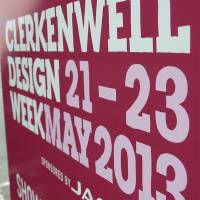June 7, 2013
Are Japanese firms using banishment rooms to get rid of unwanted employees?
Earlier in the year, it was reported that the Japanese Ministry of Health, Labor and Welfare was investigating a number of the country’s most prominent companies including Panasonic, NEC, Sony and Sharp for the morally dubious practice of setting up euphemistic business units with the primary purpose of creating an office where they could send unwanted or poorly performing employees to demoralise them and drive them ultimately to resign. Last week the Japan Daily Press blog published more information about these so-called banishment rooms or oidashi-beya, claiming that workers are forced to spend ten hours a day performing tedious and menial tasks until they decide to leave.





















June 10, 2013
NeoCon and ThinkFM offer two different views of the facilities management elephant
by Mark Eltringham • Comment, Facilities management, Furniture, Workplace design
This week sees two events taking place on opposite sides of the pond that should hold a mirror up to the way we currently design and manage workplaces. In Chicago, it’s time for NeoCon, the annual office furniture behemoth held in the vast Merchandise Mart and attracting some 40,000 visitors, while in London it’s the distinctly low-key Think FM conference from the BIFM held at the Royal College of Physicians – for today only, as they say. While these are two very different events in terms of scale, content and format and both are nakedly commercial, only one strikes me as particularly meaningful. And even that is only about the meaning of one part of the facilities management elephant.
(more…)